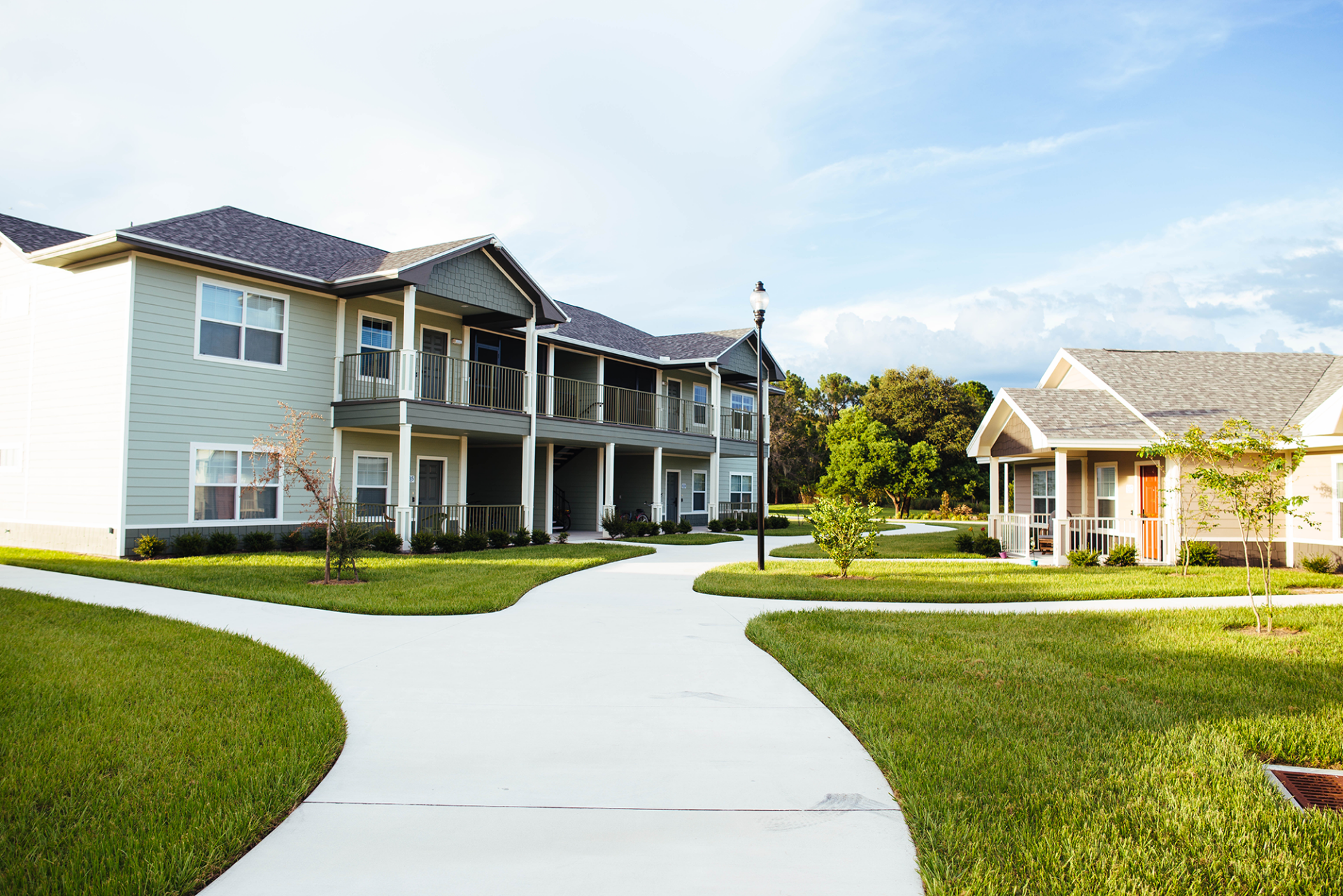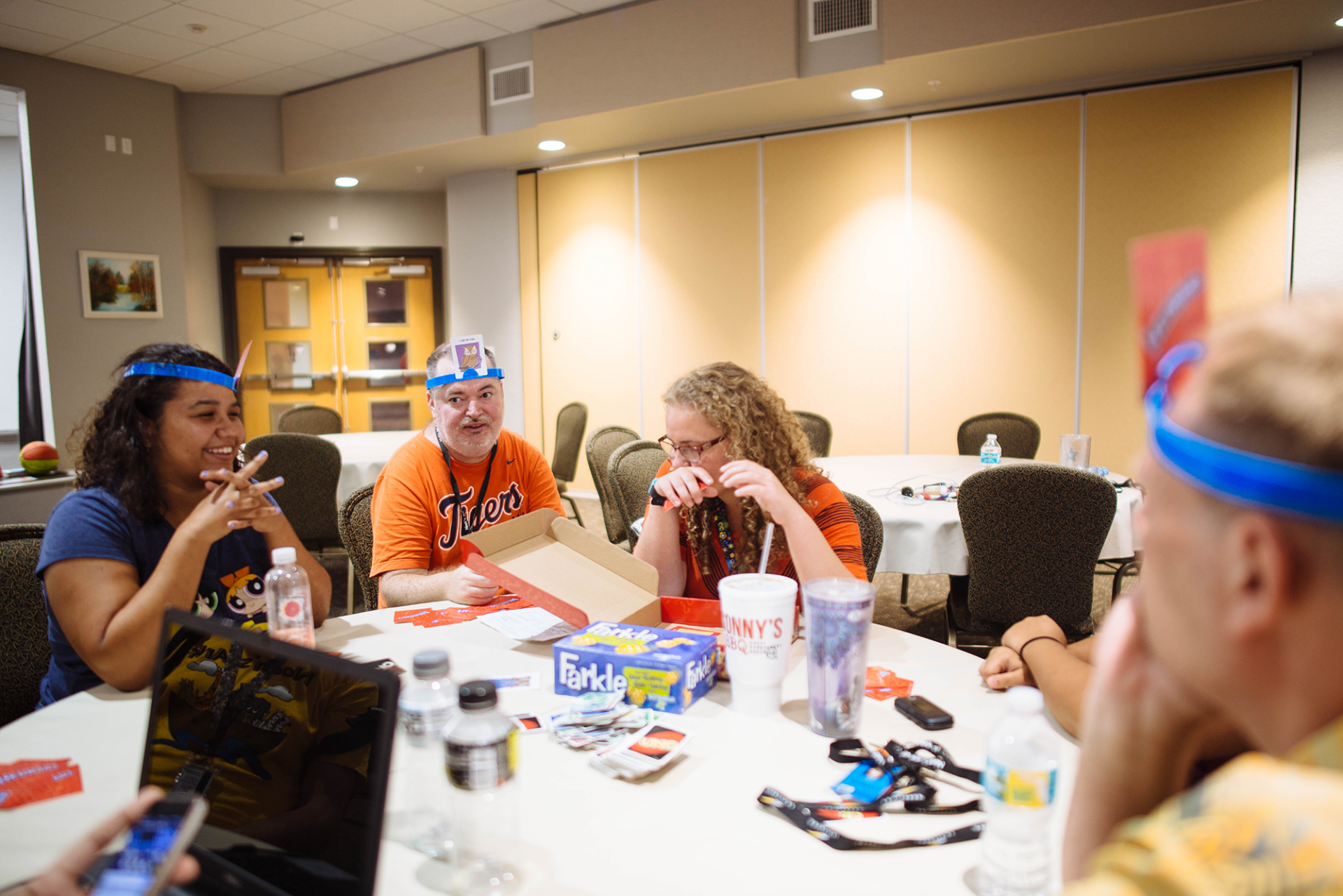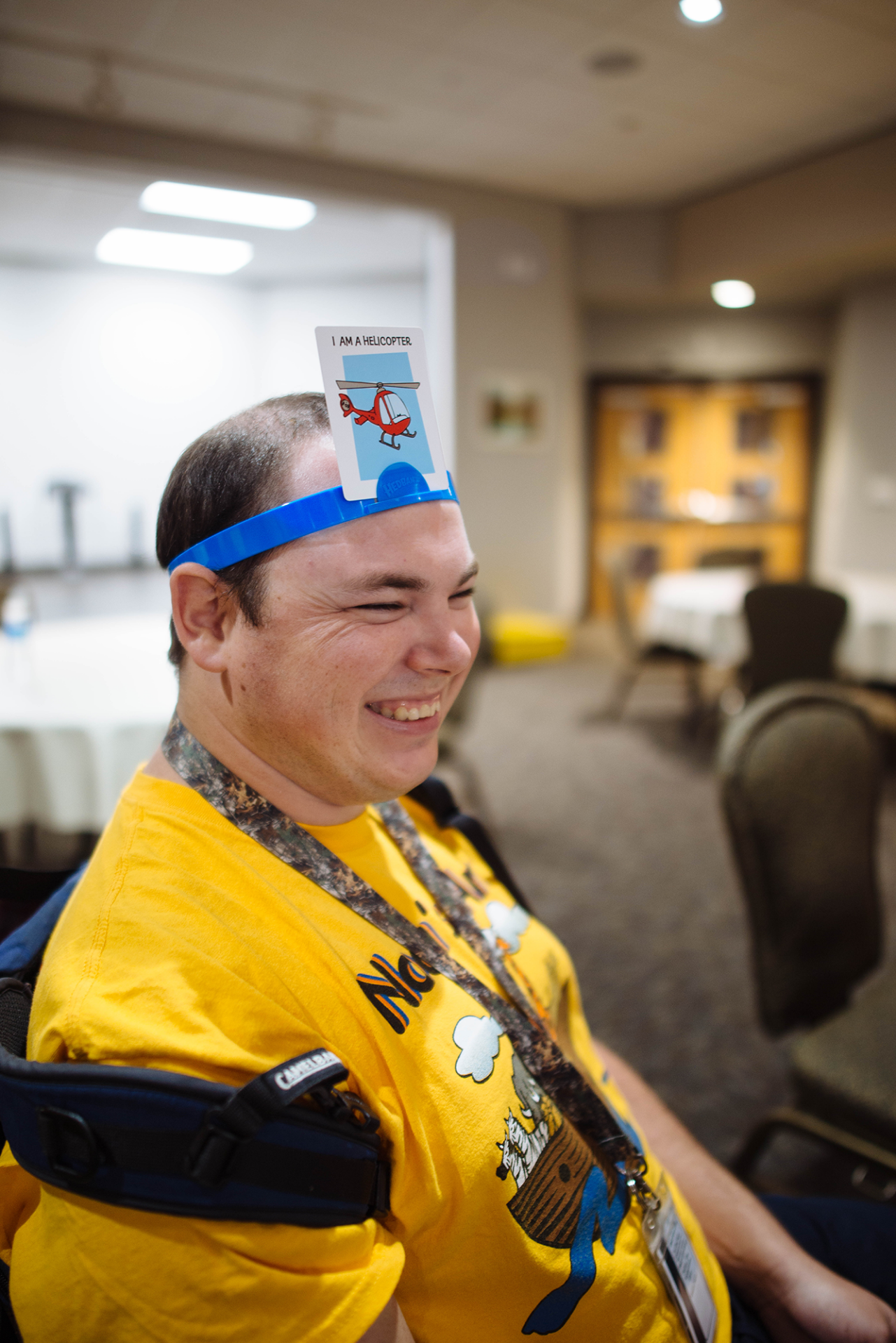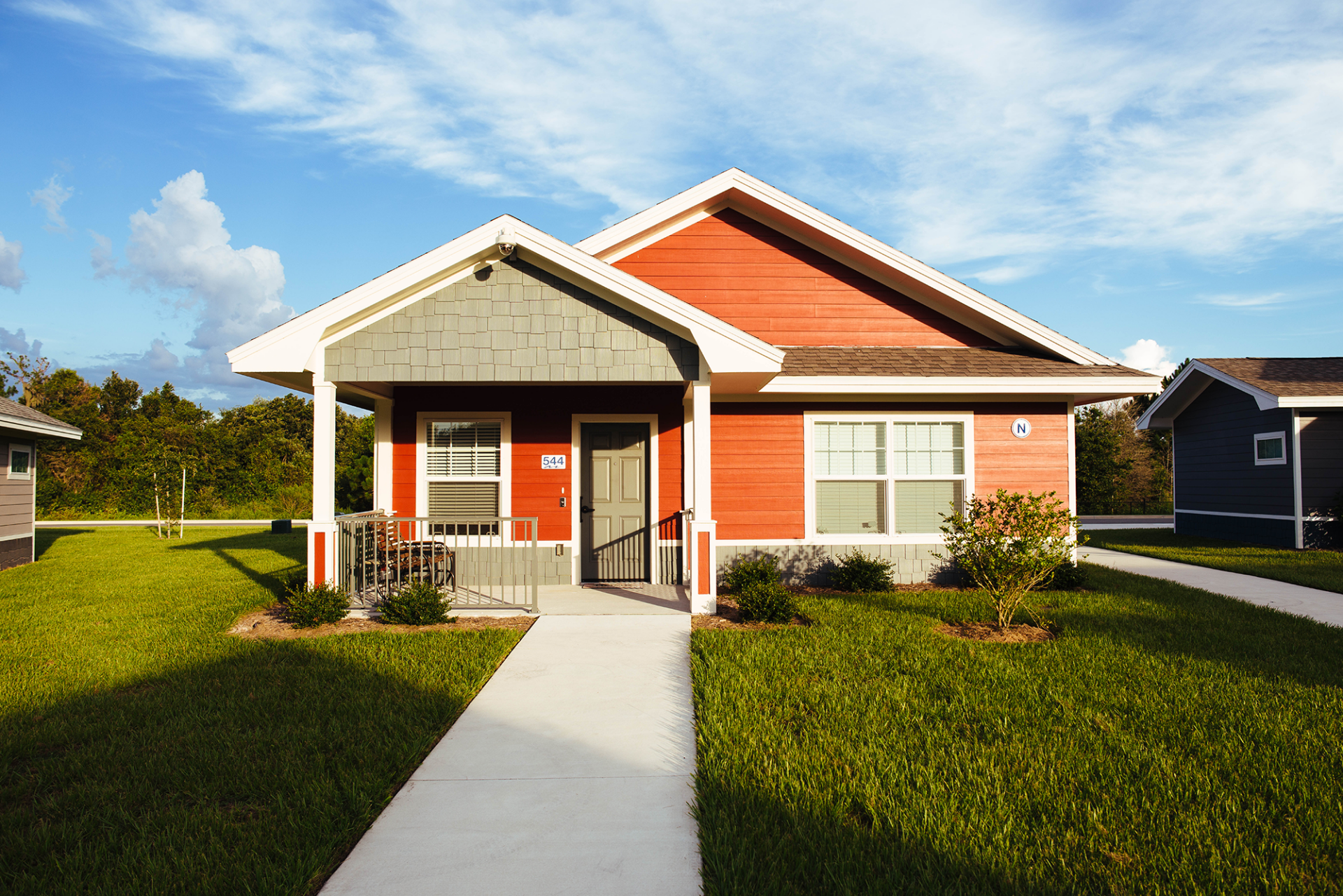Through patience and perseverance, Noah’s Ark is rewriting the future of Lakeland’s residents with intellectual development disabilities
Photography by John Kazaklis
I’ve always been an advocate for putting your money where your mouth is, both literally and metaphorically.
Too many times we have a heart for something, and we think the best thing we can do for an issue is to talk about it or vote for it every four years. If all else fails, at least we said something, right? But real transformation happens by patiently putting in healthy effort and slowly turning the wheel of change.
In the 10 years I’ve spent involved in the non-profit world of Lakeland, and the three years I’ve written for The Lakelander, I’m not sure I’ve seen a place do this as well as Noah’s Ark.

Noah’s Ark is a heavily invested, multi-campus organization that serves people with developmental and mental disabilities. Made up of Noah’s Nest (a three-home “in-town” initiative that’s home to 13 people) and their newest community, Noah’s Landing (a 56-acre compound that’s home to 146 residents with room to grow to many more), they’ve gotten to where they are through years of hard work and learning.
“We’ve changed laws,” Jack Kosik proudly states while we stand in his office discussing Noah’s Ark. There are places to sit but no time to sit down. There are things to do, and Kosik’s desk is covered in paperwork, the sign of someone who is deeply engaged in his work.
And the people at Noah’s Ark have to be engaged in their work. There are 26,000 people with mental and developmental disabilities and no money to help them.
I met with Kosik, the executive director and co-founder of Noah’s Ark, along with Margaret McNutt, one of the other founders of Noah’s Ark. Kosik, McNutt, and the rest of the founders met nearly 30 years ago in a support group for parents with kids with special needs.
When the group would meet, the parents began to think about what would happen to their children after they passed away. Where would they live? How would they socialize? The Polk County School system takes ESE students from ages three to 20, but after school there aren’t many options for people with disabilities to socialize or get involved in a community.
So, Kosik, McNutt, and a few of the other parents formed Noah’s Ark and started showing up to everything they could and getting involved in anything that could help their children. One of the first groups to help them were the people of First United Methodist Church in Lakeland.
“First United Methodist had a parishioner that needed a solution, and they gave us a plot of land, and we needed to get a house built,” McNutt explains during our first meeting. So, she, her son, and other members of the group started getting involved with Habitat for Humanity.

“At the time, Habitat for Humanity built a house every other year, and some of the guys and I started showing up at the job sites and helping. I didn’t know how to do anything, but they showed me how to build window frames, and we just kept showing up.”
After helping build five houses, McNutt and her team got their first house built in 2001, and every single part of it was donated. Over the next few years, they built two new houses on that property and established Noah’s Nest, all through the help of the community.
“I have to say this,” McNutt explains. “I grew up in New York, and I’ve lived in Birmingham, but I will absolutely live here the rest of my life. I’m blown away by Lakeland and their sense of community, and I don’t care if you’re talking about us or anybody else that does charitable work. I’ve never lived in a place that was that community minded.”
They didn’t stop with Noah’s Nest though. They had big dreams and goals, and knew where they needed to go next — straight to the state capitol.
For 10 years, residents of Noah’s Ark worked as pages while the Florida State Legislature was in session. In between working as pages, McNutt and the residents would knock on lawmakers’ doors and talk to them about their campaign to change laws for people with special needs. Local representative Kelli Stargel and her husband, former representative John Stargel, were incredibly helpful in the fight and helped pass Senate Bill 1166 in 2010.
The bill changed the rule on community residential homes, allowing them to be within 1,000 feet of each other and challenging the idea that any given area’s population couldn’t be more than 10 percent people with disabilities. It took nine months and four public hearings to get the bill passed, but it paved the way for the next phase of Noah’s Ark: Noah’s Landing.
Opened in 2016, Noah’s Landing is a 56-acre compound in North Lakeland and currently home to a loving community of 146 residents. Three full-time resident advisors live on campus as well, on call when the Noah’s Ark staff aren’t in the office.
Because it’s a mix of single homes, duplexes, and apartments, Kosik and the rest of the staff had to change even more rules to build a mixture of housing on the same property. The staff at Noah’s Ark wanted everything to be as inclusive as possible. They didn’t want to create a culture of have and have not by separating living styles. All homes face in toward one another, creating a safe, walkable pathway from the homes to the clubhouse, making the entire area feel quaint and community minded.

Photographer John Kazaklis and I had the privilege of visiting Noah’s Landing recently. We were greeted by McNutt and several residents, one of whom had accidentally locked himself out of his home. McNutt and two of the residents kindly and patiently helped the young man call the number on the phone of the RA on call to help him get back into his apartment. As we waited, I couldn’t help but notice how the small village of Noah’s Landing is so charming and peaceful.
The center of the community is the clubhouse, complete with pool area, a place for cookouts, basketball courts, a dining hall, classrooms, TV, game rooms, and the Noah’s Ark offices. Residents have the option to have dinner every night at the dining hall, and some even help cook and prepare the food. These life skills that the residents learn at Noah’s Ark can help lead to bigger things in their lives. Before we toured the kitchen, one resident told us that she got a full-time job with benefits working in a cafeteria at a Polk County School. These kinds of opportunities are exactly what the families of the residents of Noah’s Ark are hoping for.
At night, the dining room becomes a gathering place where residents play games and spend time together. None of the staff have encouraged this to happen — the residents do it all themselves. As we walked the area, we were invited to a party. One of the young ladies had made tacos and turned music on and invited her friends over … and everyone was invited. The residents are friends that love and care for each other like family.

There have been plenty of learning moments over the past 20 years of Noah’s Ark, but one of the things the staff learned is how to know what’s an emergency and what is an opportunity to become a teachable moment. When something goes wrong, the staff helps encourage the residents and come alongside the parents to provide them with what they call “soft landings” and learnable solutions for their problems. Their goal is for the residents to be self-sustainable and independent.
They also make sure that the residents stay busy and involved, either with work at Noah’s Ark or by holding jobs in the community or by volunteering at other local non-profits. They help serve at Wings of Eagles ministries three times a week and have helped cook meals for local food bank ElderPoint Ministries.
Noah’s Ark is helping serve the whole person when it comes to their residents, and the families of the residents are more than thankful for the good work they’re doing to secure and improve the future of the people who live there.
“Noah’s Ark takes up prime real estate in my heart,” Katie McNutt says. Her aunt is Margaret McNutt, and she spends a lot of time with her cousin Jared, also known as “Joy Boy,” and his friends.
“Jared is an absolute blessing to my family and binds us together in ways others may not understand,” says Katie. “Knowing Jared has the opportunity to live in a community with his friends, enjoy activities catered to his abilities, and be cared for and loved on by everyone involved with Noah’s Ark is an answer to years of hard work and heartfelt prayers.”
The people at Noah’s Ark know that to create change for their families and friends with mental and developmental disabilities it takes a long time and a lot of hard work. Sitting on Kosik’s office shelf is a wooden sign that says, “Never give up. Never ever give up.” They’ve accomplished a lot, but they still have plenty to do.
Kosik says, “Noah’s Ark is a 1,000-piece puzzle, and 40 percent of the puzzle is in place. We keep showing people the pieces that they can own.”
Noah’s Ark is a community of perseverance supported by a community that perseveres with them. It’s quintessential Lakeland and one of the brightest spots in our non-profit community.
